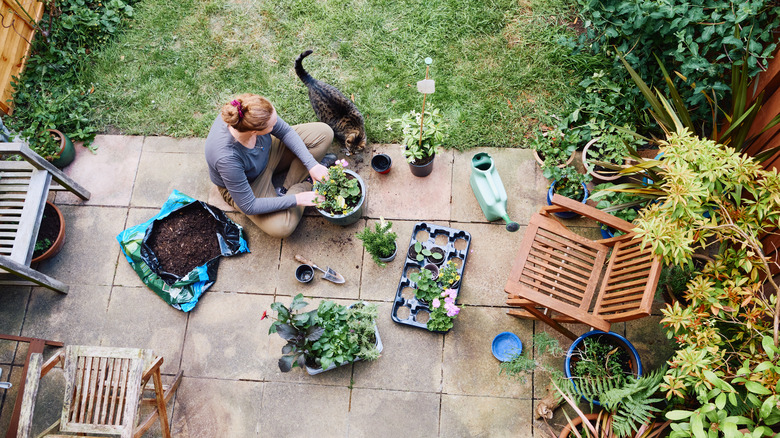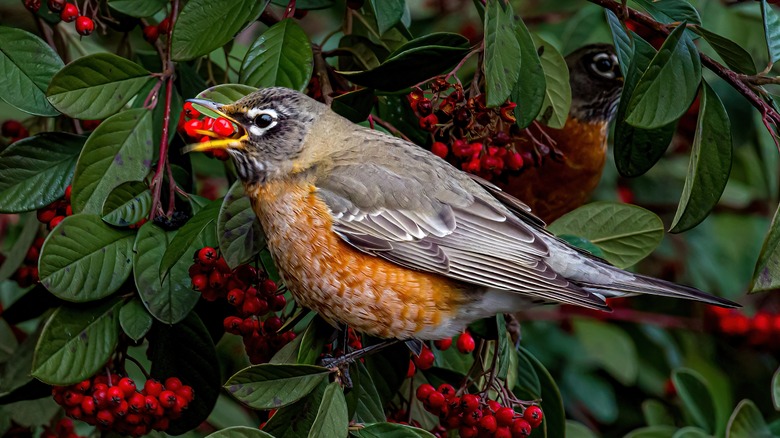Planting This Beautiful Berry Bush To Attract Birds Could Be A Big Mistake
There are lots of colorful, fruiting shrubs that attract birds and brighten your garden in fall and winter. Among the most popular is cotoneaster (Cotoneaster horizontalis). There are 50 species across Eurasia, and approximately 400 worldwide. Although some are deciduous, many are semi-evergreen or evergreen so they keep their leaves all year round.
Cotoneaster is an easy-to-grow example used as ground cover, or for growing at the base of walls where it can reach up to 3 feet tall. It produces a dense covering of rich green leaves with a mass of small red berries. These can last until spring and are a popular food source for many birds, right when they need it most. So why would planting a beautiful berry bush that attracts birds to your garden be a bad idea? There are a couple of reasons.
Unfortunately, cotoneaster berries are harmful to both pets and people. Severe reactions are unusual, but when the stomach's gastric juices start to break down the berries, they can produce cyanogenic glycoside toxicity — or in other words cyanide poisoning.
The bigger problem arises when the birds have eaten and flown away
The second problem is less obvious but more widespread. The birds eat the berries. The berries pass through the bird's digestive system and are then deposited elsewhere. The seeds germinate, and the plant begins to grow. Which all seems perfectly natural.
Except cotoneaster is not native to the U.S. (it is originally from Europe and parts of Asia), so many species are considered invasive across the States. Cotoneaster competes for space, water, and nutrients with native plants. It's a tough intruder, so it often squeezes out the locals, changing the environment in the process. This can result in the loss of food sources and habitats for insects, birds, and wildlife. Although it's perfectly legal to grow cotoneaster, the National Parks Service has an ongoing program of eradication and numerous government agencies across the country encourage its removal.
Not all cotoneasters are invasive, but why take the risk? There are plenty of other shrubs to attract birds to your yard, and if you choose to grow native varieties, you are benefiting not just our feathered friends but the whole ecosystem.

